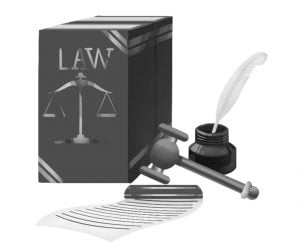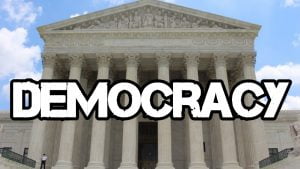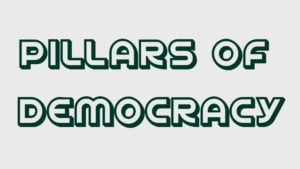Differences Between Democracy and Authoritarianism: The growth of populist movements and leaders has created unexpected threats to human rights and freedom that pose severe difficulties for democracies around the world. To better protect democracy, we must comprehend the causes behind the rise of authoritarian leadership. To this end, we need to find answers to fundamental questions like why people embrace authoritarian leaders and how democracy turns authoritarian. Above all, we must comprehend the nature of authoritarian governments and how they vary from democracies.

You’d find out in this blog post, the fundamental difference between democracy and authoritarianism. But first of all, let’s examine the meaning of the concepts individually.
Recommended: How to handle a stubborn child
What is Authoritarianism?
Democracies all over the world have faced new challenges in recent years, and it is fair to claim that this has not always been the case. Despite the fact that the number of democracies worldwide is still at an all-time high, there are forces at work that could halt democracy’s advancement. We’ve seen soldiers overthrow civilian-led governments in Sudan and Myanmar, and they’re now fighting to preserve democracy there. State of emergencies were established on their respective populations in 2021 by Ethiopia and Ecuador. What is it if this is not democracy? And why is this taking place?
Nothing about this has an easy solution.

The opposite of democracy is authoritarianism, which is similar to a dictatorship but differs in that only one person has control. It is the progressively weakening of democratic norms. More restrictions on people’s freedoms and the imposition of laws without their agreement give leaders greater influence over the populace. The majority of the time, the government has power over both the public and private spheres of its citizens’ life, and it can enact laws without consideration for their civil freedoms. A single person or a small group of elites who control the government and have unrestricted authority over the people they rule are said to practise authoritarianism.
Also see: Countries with the Most Cultural Diversity
What is Democracy?
Democracy is a well-known idea. Democracies are evidently present in countries like Germany, the United States, and India. The Greek words “demos,” which means “people,” and “kratia,” which means “rule,” are the origin of the word democracy. Simply described, a democracy is a form of governance where the people have the power and privilege to make laws.

Democracy places the needs of the people at the centre of governance, in contrast to monarchy or authoritarianism. As Abraham Lincoln defined it, democracy is ‘government of the people, by the people and for the people.’ However, over time, notions of democracy have changed beyond simply giving the people control.
Recommended: Most Powerful Empires in History
Differences between Authoritarianism and Democracy
1. Governance: Of course, governance is one of the most fundamental but essential contrasts between the two political systems. Democracy is designed to protect citizens’ rights and powers, enabling them to make laws and elect their representatives in free, transparent, and representative elections.

On the other hand, authoritarianism is a type of government that holds power and enacts laws without the approval of the citizens it governs. Elections, freedom, control, and other such concepts are meaningless in an authoritarian state.
2. Participation: The degree of expected and permitted public participation is yet another trait that sets democratic governments apart from authoritarian ones. Democracy is a system in which all voters have an equal say in elections and are informed about societal issues.
The freedoms and rights that citizens have can be used to define democracy. On the other hand, authoritarianism does not expect such levels of engagement, and public opposition is seen as public rebellion. The decision-makers are the leader or leaders, and they forbid their subjects from speaking in public.
Recommended: How To Become a Successful Entrepreneur
3. Liberties: A democratic administration differs from authoritarian ones in that it upholds fundamental liberties. Cultural, racial, religious, and other minority groups have equal access to the democratic system to express their interests. To the best of its ability, the government upholds and defends the fundamental liberties and rights of its people.
The opposite of freedom of thought and behaviour is authoritarianism, which grants authority total control. The ruler disregards or even infringes upon the fundamental liberties and rights of its people; they are not treated with respect. Religious freedom and other civil liberties are not recognised in authoritarian regimes.
Recommended: Countries With The Best Judicial System In The World 2023
Comparative similarities between democratic and authoritarian rule
Democracy and authoritarian dictatorship have relatively few things in common. Both can be categorised as types of government. In both democratic and authoritarian systems, a single person or small group of people exercise ultimate power. Depending on a variety of variables, including the specific person who holds executive authority, both styles of governance may be productive or destructive. A dictatorship is typically a bad type of government.
Democracy, however, can also be frail if it is frequently paralysed by disputes. Since most of them tend to have elements of dictatorship, it is generally accepted that there are no pure democracies. In democracies, people believe that the ruling class has their consent to rule, whereas both systems are created to effectively manage the populace.
Recommended: Ways to Tell If Someone is Lying on the Phone
Frequently Asked Questions About Democracy and Authoritarianism
Can a Democracy be Authoritarian?
Around the world, there are democratic but authoritarian governments. These types of governments are referred to as “competitive authoritarianism” or “illiberal democracy.” In essence, these nations’ leaders won elections before using undemocratic methods to further solidify their positions of authority. These so-called pseudo-democracies allow voting, but once the ruling party takes office, the elections are not fairly held. To ensure there is no room for protest, they restrict the civil liberties of the people they rule.
The illiberal democracy will disobey any constitution that exists or enact laws that circumvent it. Press freedom is frequently not allowed in illiberal democracies. Their judicial systems are not entirely independent. They lack public colleges where students can select their own courses without interference from the government.
These nations are not distinguished as being free or not. Although they may be moving towards totalitarian control, the ruling class is frequently not sufficiently entrenched to prevent a return to democracy in the future. Turkey, Russia, Poland, Venezuela, and Hungary are examples of these “authoritarian democracies”. These illiberal democracies’ rulers frequently defend themselves by donning populist garb. They run as populists, win the election, and then use system manipulation to make it nearly impossible for any challengers to their authority.
Recommended: Most Dangerous Places to Live in Nigeria
What is the key distinction between democratic and authoritarian regimes?
Authoritarian governments are those that have complete control over the personal, social, and political life of their citizens. Contrarily, democracy is a people-centered political system in which every citizen is given the most freedom possible.
What distinguishes an authoritarian administration from a constitutional democracy?
An authoritarian system of governance is one in which the ruler has unrestricted authority and total control over the populace. A single leader or a group of leaders looking to increase their authority may assault judicial independence. The existence of a constitution establishes the constitutional government, which is governed by the rule of law.
Recommended: Countries With The Highest Rate Of Cybercrime
In conclusion
In a nutshell, democracy is designed to maintain the authority and rights of citizens, allowing them to decide on legislation and elect their leaders. As the foundation for individual rights and liberties, the rule of law is one of democracy’s most essential characteristics. Voting, demonstrating, lobbying, and other formal rights of the citizenry can be used to affect political decision-making.
Authoritarianism, on the other hand, is incompatible with concepts like liberty, freedom, rights, equality, and free will. A system where a single person or a small group of elites who control the government and have unrestricted authority over the people they rule are said to practise authoritarianism.

Edeh Samuel Chukwuemeka, ACMC, is a lawyer and a certified mediator/conciliator in Nigeria. He is also a developer with knowledge in various programming languages. Samuel is determined to leverage his skills in technology, SEO, and legal practice to revolutionize the legal profession worldwide by creating web and mobile applications that simplify legal research. Sam is also passionate about educating and providing valuable information to people.